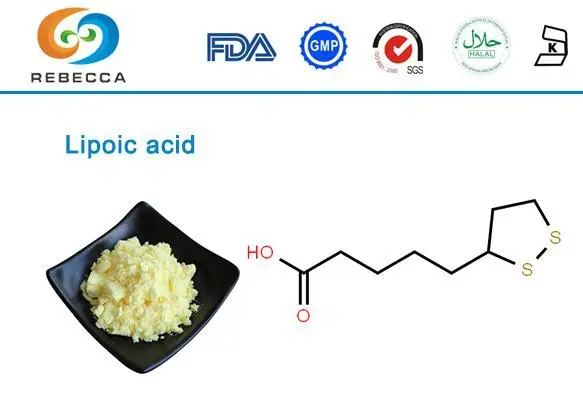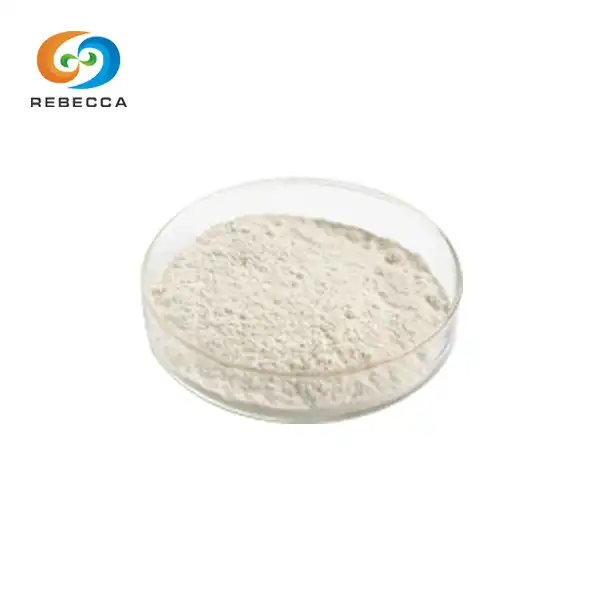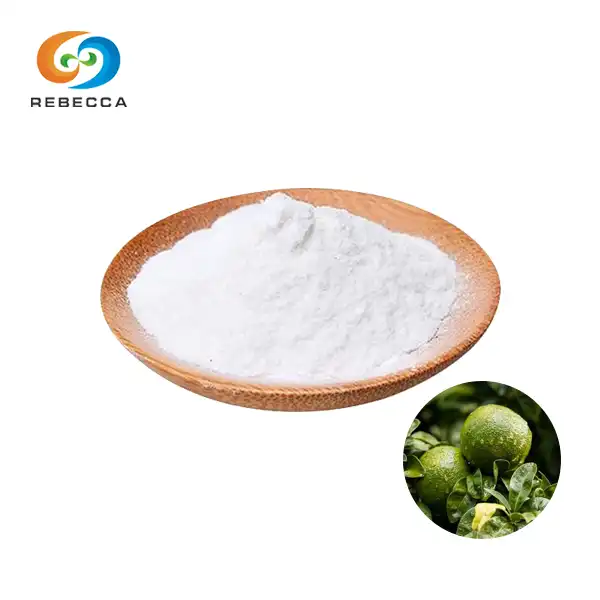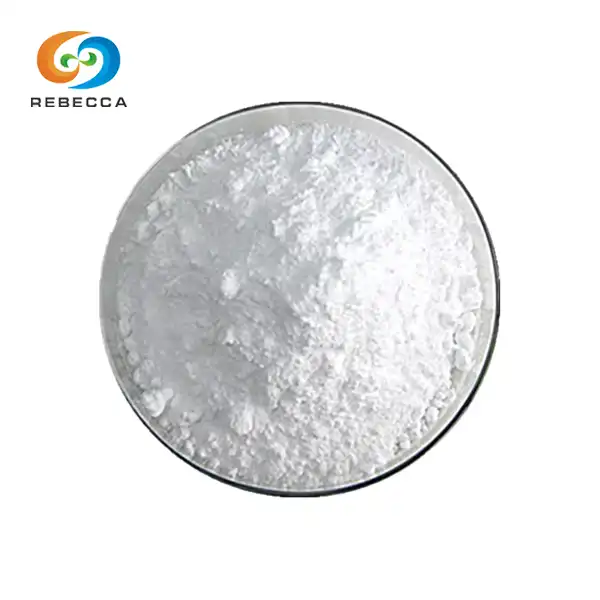Can alpha lipoic acid good for raising blood pressure?
Alpha lipoic acid (ALA) is a naturally occurring compound that has gained attention for its various health benefits. As interest in natural health supplements continues to grow, many are curious about the relationship between ALA and blood pressure regulation, particularly for those with low blood pressure (hypotension).

Functions of Alpha-Lipoic Acid
Alpha lipoic acid is often referred to as the "universal antioxidant" due to its unique properties and multiple functions in the body. Understanding these functions provides insight into how this compound might influence blood pressure and overall cardiovascular health.
Powerful Antioxidant Properties
Alpha lipoic acid stands out among antioxidants because it is both water and fat-soluble, allowing it to work throughout the body and protect various tissues from oxidative damage. Unlike other antioxidants that work only in specific environments (either water or fat-based), ALA can neutralize free radicals in multiple body systems.
The antioxidant capabilities of alpha-lipoic acid extend beyond its direct actions. Research has shown that ALA can help regenerate other important antioxidants in the body, including vitamins C and E, coenzyme Q10, and glutathione. This regenerative capacity creates a cascade effect that enhances overall antioxidant protection throughout the body's tissues and organs.
Oxidative stress plays a significant role in the development and progression of cardiovascular diseases, including hypertension. By combating oxidative stress, alpha lipoic acid may help maintain healthy blood vessel function, which is crucial for proper blood pressure regulation. Studies have demonstrated that increased oxidative stress can damage endothelial cells (the cells lining blood vessels), leading to impaired vasodilation and potentially elevated blood pressure.

Anti-inflammatory Effects
Chronic inflammation is increasingly recognized as a contributing factor to various cardiovascular conditions, including abnormal blood pressure. Alpha lipoic acid has demonstrated anti-inflammatory properties in multiple studies, which may contribute to its potential cardiovascular benefits.
Its anti-inflammatory effects appear to work through several mechanisms, including inhibition of nuclear factor kappa B (NF-κB), a protein complex that plays a key role in regulating the immune response to infection and inflammation. By modulating inflammatory pathways, ALA may help protect blood vessels from inflammation-induced damage and dysfunction.
Research has shown that alpha lipoic acid supplementation can reduce levels of inflammatory markers such as C-reactive protein (CRP) and interleukin-6 (IL-6), both of which are associated with increased cardiovascular risk. By reducing systemic inflammation, ALA may help maintain healthy endothelial function and vascular tone, which are critical factors in blood pressure regulation.

Effects on Blood Pressure
The relationship between alpha lipoic acid and blood pressure is complex and multifaceted. Research has explored various mechanisms through which ALA might influence blood pressure regulation, with some studies suggesting potential benefits for both hypertension and hypotension under certain conditions.
Endothelial Function and Nitric Oxide Production
One of the primary ways alpha lipoic acid may affect blood pressure is through its impact on endothelial function. The endothelium, which lines the interior surface of blood vessels, plays a crucial role in regulating vascular tone and blood pressure by producing nitric oxide (NO) and other vasoactive substances.
Research has demonstrated that alpha-lipoic acid can enhance nitric oxide production and bioavailability. Nitric oxide is a potent vasodilator that helps relax blood vessels, potentially leading to decreased blood pressure. By supporting healthy endothelial function and nitric oxide synthesis, ALA may help maintain appropriate blood vessel dilation and blood pressure levels.
A study published in the Journal of Hypertension found that alpha lipoic acid supplementation improved endothelium-dependent vasodilation in patients with metabolic syndrome, suggesting a potential benefit for vascular health. However, this effect might be more pronounced in individuals with pre-existing endothelial dysfunction, such as those with hypertension or diabetes.
Research Findings on Blood Pressure Effects
The research on alpha lipoic acid and blood pressure has yielded mixed results, with some studies showing modest blood pressure-lowering effects in hypertensive individuals, while others have found minimal or no significant impact on blood pressure.
A meta-analysis published in the Journal of Clinical Hypertension analyzed data from multiple randomized controlled trials and concluded that alpha lipoic acid supplementation was associated with a modest reduction in systolic blood pressure in individuals with metabolic disorders. However, the effect size was relatively small, and the authors noted significant heterogeneity among the included studies.
Another study published in Hypertension Research examined its effects on ambulatory blood pressure in patients with type 2 diabetes and found a significant reduction in 24-hour blood pressure patterns, suggesting potential benefits for cardiovascular risk reduction in this population.
It's important to note that most research has focused on the potential blood pressure-lowering effects of alpha lipoic acid in individuals with hypertension or related conditions. Limited data exists regarding the effects of ALA on individuals with normal or low blood pressure, making it difficult to draw definitive conclusions about its potential to raise blood pressure in cases of hypotension.

Considerations for Hypotension
For individuals with hypotension (low blood pressure), understanding how alpha lipoic acid might affect their condition is particularly important. While much of the research has focused on ALA's potential benefits for hypertension, several factors should be considered when evaluating its use for low blood pressure.
Potential Mechanisms for Raising Blood Pressure
Theoretically, there are several mechanisms through which alpha lipoic acid might help raise blood pressure in individuals with hypotension, although clinical evidence specifically addressing this application is limited.
Its effects on mitochondrial energy production could potentially improve cardiac output and vascular tone, which might benefit individuals with hypotension related to autonomic dysfunction or insufficient cardiac performance. By enhancing energy metabolism in cardiac and vascular tissues, ALA might support more effective circulation and blood pressure maintenance.
Additionally, some research suggests that alpha lipoic acid might help regulate fluid balance and electrolyte levels, which are important factors in blood pressure regulation. By supporting proper hydration and electrolyte balance, ALA could potentially help stabilize blood pressure in individuals prone to hypotension.
It's also worth noting that alpha-lipoic acid's neuroprotective effects might benefit individuals with neurogenic orthostatic hypotension, a condition characterized by insufficient sympathetic nervous system response when changing positions. By supporting nerve function, ALA might help improve autonomic responses and blood pressure stability during position changes.

Rebecca Is Alpha Lipoic Acid Powder Supplier
Alpha lipoic acid represents a fascinating compound with multiple physiological effects that may influence blood pressure regulation through various mechanisms. While much of the existing research has focused on its potential benefits for hypertension and metabolic disorders, the theoretical bases for its application in hypotension deserve further exploration.
For individuals with consistently low blood pressure, alpha-lipoic acid powder might offer supportive benefits through its effects on energy metabolism, endothelial function, and nervous system health. However, it should be approached as part of a comprehensive strategy that addresses underlying causes of hypotension and incorporates appropriate lifestyle modifications.
The decision to use alpha lipoic acid supplements should be made in consultation with healthcare providers, taking into account individual health status, medication use, and specific blood pressure patterns. Regular monitoring and adjustment of supplementation based on observed effects can help optimize outcomes while minimizing potential risks.
As research continues to evolve, our understanding of alpha lipoic acid's role in blood pressure regulation will likely become more refined, potentially opening new avenues for its therapeutic application in various cardiovascular conditions, including hypotension.
Rebecca alpha lipoic acid powder
Specification: 99%
Test Method: HPLC
Appearance: Light yellow to yellow powder
For more information or to place an order, please reach out to us at information@sxrebecca.com.
References
-
Goraca A, et al. (2011). Lipoic acid - biological activity and therapeutic potential. Pharmacological Reports, 63(4), 849-858.
-
Sola S, et al. (2005). Irbesartan and lipoic acid improve endothelial function and reduce markers of inflammation in the metabolic syndrome: results of the Irbesartan and Lipoic Acid in Endothelial Dysfunction (ISLAND) study. Circulation, 111(3), 343-348.
-
Moradkhan R, Sinoway LI. (2010). Revisiting the role of oxygen therapy in cardiac patients. Journal of the American College of Cardiology, 56(13), 1013-1016.
-
Rahman ST, et al. (2007). The impact of alpha-lipoic acid, coenzyme Q10 and caloric restriction on life span and gene expression patterns in mice. Free Radical Biology and Medicine, 43(6), 860-866.
-
Ziegler D, et al. (2011). Efficacy and safety of antioxidant treatment with α-lipoic acid over 4 years in diabetic polyneuropathy: the NATHAN 1 trial. Diabetes Care, 34(9), 2054-2060.








